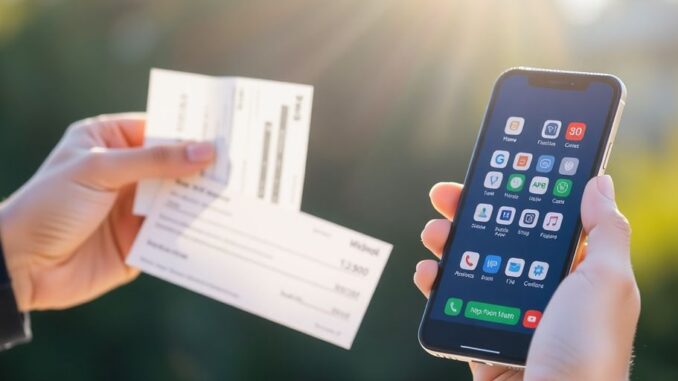
Navigating the financial landscape without a traditional bank account presents unique challenges, but a growing number of alternatives are available for those who are unbanked or underbanked. These options, while sometimes costly, offer pathways to access funds and manage finances outside the conventional banking system.
Key Takeaways
- Approximately 4.2% of U.S. households are unbanked, meaning they have no relationship with traditional financial institutions.
- An additional 14.2% are underbanked, using banks but also relying on alternative financial services.
- Common barriers to traditional banking include high fees, minimum balance requirements, lack of trust, past financial mistakes, and inconvenient access.
- Alternatives like check-cashing services, prepaid cards, and payment apps offer solutions but often come with higher costs than traditional banking.
Cashing Checks Without a Bank Account
For individuals who receive checks but lack a bank account, several options exist:
- Issuing Bank: Many banks will cash checks for non-customers, provided they have proper identification and sufficient funds in the payer’s account. Fees can vary, with some banks charging a flat fee for non-customers.
- Major Retailers: Stores like Walmart offer check-cashing services, often at a lower cost than specialized check-cashing stores. Fees typically range from $4 to $8 for most checks.
- Prepaid Debit Cards: These cards can be loaded with funds via mobile check deposit. While convenient, prepaid cards often have various fees, including monthly, ATM, and reload charges.
- Payment Apps: Services like PayPal and Cash App allow users to deposit checks via their mobile apps. Fees vary, with some apps charging a percentage of the check amount.
- Check-Cashing Stores: These are generally the most expensive option, with fees that can reach up to 10% of the check’s value. They should be considered a last resort.
Reasons for Being Unbanked or Underbanked
Several factors contribute to individuals remaining outside the traditional banking system:
- High Fees and Minimum Balances: Many banks impose monthly maintenance fees and minimum balance requirements that can be prohibitive for low-income individuals.
- Lack of Trust: Past negative experiences with financial institutions or a general distrust can lead people to avoid traditional banks.
- Past Financial Issues: Problems like bounced checks or unpaid fees can result in being flagged by systems like ChexSystems, making it difficult to open new accounts.
- Inconvenience: Limited branch hours, inconvenient locations, and the difficulty of gathering required documentation can be significant barriers.
- Preference for Digital Alternatives: Younger generations, in particular, often prefer the convenience and tech-forward nature of payment apps and digital wallets.
Bridging the Gap to Financial Inclusion
While alternatives exist, they often come with higher costs and fewer benefits, such as the inability to build credit or earn interest. Solutions like second-chance banking programs, credit union memberships, and online banks with no-fee or low-minimum balance accounts can help individuals transition to more traditional and beneficial financial services.
Sources
- 6 Ways To Cash A Check Without A Bank Account, Bankrate.
- 6 Reasons To Be Unbanked Or Underbanked, Bankrate.

